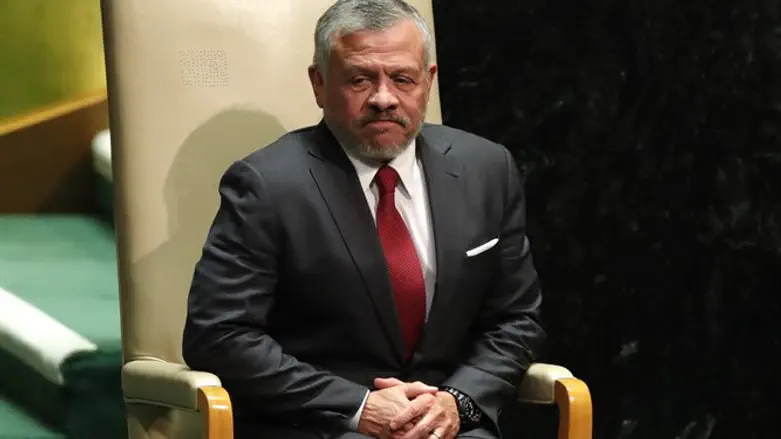
US President-elect Joe Biden on Monday spoke with King Abdullah II of Jordan, in what was his first conversation with an Arab leader since his election victory.
The Biden-Harris transition team said that Biden “thanked King Abdullah for his warm congratulations and expressed his personal determination to strengthen the US-Jordanian strategic partnership. He conveyed his appreciation for Jordan's invaluable role in hosting Syrian and other regional refugees.”
The statement also said that Biden noted that he looks forward to working closely with King Abdullah “on the many interests shared by our countries”, including containing COVID-19 and combating climate change; countering terrorism and addressing other regional security challenges; and supporting a two-state solution to the Israeli-Palestinian conflict.”
The Jordanian Foreign Ministry said in a statement on Twitter that the king expressed “keenness” to continue bolstering the strategic relationship between the US and Jordan and expand cooperation.
Jordan signed a peace deal with Israel in 1994 but has been critical of Israeli plans to apply sovereignty over Judea and Samaria and has repeatedly stressed the importance of a two-state solution to resolve the Israeli conflict with the Palestinian Arabs.
The Jordanian parliament, which is made up mostly of Islamists, remains anti-Israel and its members have more than once called to annul the peace treaty.
While Biden has received congratulatory statements from many leaders in the Arab world, the phone call with King Abdullah was the first official contact the president-elect has had with the Arab world.
Saudi Arabia, an important player in the Middle East, was one of the last countries to congratulate Biden over his election victory, doing so more than 24 hours after television networks projected he defeated President Donald Trump.
Saudi Arabia’s foreign minister, Prince Faisal bin Farhan Al Saud, said on Saturday he was confident that Biden’s incoming administration would pursue policies that help regional stability.
